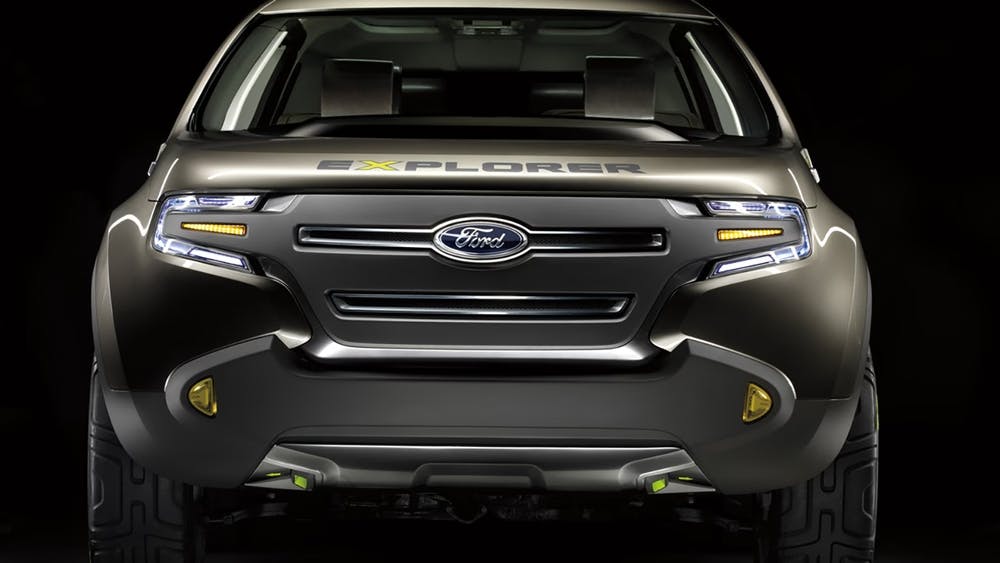
Ford Ditches Big EV SUVs for Hybrids
In a significant strategic shift, Ford has decided to abandon its long-awaited plans to develop large three-row electric SUVs. This decision marks a notable change in direction for the automaker, which has been pushing hard into the electric vehicle (EV) market in recent years. The move, first reported by The Wall Street Journal and Automotive News, reflects the realities of the current EV market and Ford's recalibrated approach to sustainable automotive technology.
The Road to Cancellation
Ford initially planned to launch electric versions of its popular Ford Explorer and Lincoln Aviator models, with a projected release date of 2025. The automaker had touted these vehicles as flagship models in its burgeoning electric lineup, intended to compete in the lucrative large SUV market. However, despite years of anticipation, Ford never unveiled any concepts for these models, and the program faced multiple delays.
The delays were due in part to logistical challenges, including changes in production plans. Originally, these electric SUVs were to be built at plants in Mexico, but production was later moved to Canada. Even so, the timeline kept slipping. This spring, Ford announced yet another delay, pushing the launch back to 2027. Now, the automaker has decided to scrap the program altogether.
The Rationale Behind the Decision
The decision to cancel the large electric SUV program was not made lightly. According to reports, Ford CEO Jim Farley recognized a critical issue: while large SUVs are highly profitable when powered by internal combustion engines, they can become financial burdens when outfitted with expensive batteries required for electric powertrains. The high cost of batteries, combined with the current market conditions, has made large electric SUVs a less viable business proposition for Ford.
The decision also reflects a broader trend in the automotive industry, where the enthusiasm for EVs has been tempered by the realities of production costs, supply chain challenges, and fluctuating consumer demand. Ford had initially set an ambitious goal of producing 2 million EVs annually by the end of 2026, aiming to become the world's leading EV manufacturer. However, the company is now shifting its focus to more affordable and practical alternatives.
The New Focus: Hybrid SUVs and Delayed EV Trucks
With the cancellation of the large electric SUV program, Ford is pivoting its strategy to focus on hybrid vehicles, particularly three-row SUVs that will offer extended-range options. This approach mirrors the strategy employed by Stellantis with its 2025 Ram 1500 Ramcharger, a hybrid vehicle that has generated significant interest due to its impressive range and power, made possible by an onboard gasoline-fed generator.
While Ford has not released detailed specifications for these upcoming hybrid SUVs, the company has hinted that they will feature a range of propulsion options, likely combining traditional combustion engines with electric power to deliver both performance and efficiency. This hybrid approach is seen as a more sustainable and cost-effective solution for large vehicles, balancing the need for lower emissions with the realities of current technology and consumer preferences.
In addition to the shift to hybrids, Ford is also delaying the launch of its next generation of electric full-size pickup trucks, known as the T3. Originally slated for an earlier release, these trucks are now expected to arrive in late 2027, a delay of approximately 18 months. This postponement allows Ford more time to develop and refine lower-cost battery technologies and to build these trucks on a bespoke electric platform, rather than modifying the existing F-150 architecture, as was done with the current F-150 Lightning.
Looking Ahead: A Hybrid Future
Ford's decision to cancel its large electric SUV program and refocus on hybrids underscores the evolving landscape of the automotive industry. While electric vehicles remain a critical part of the future, the current economic and technological challenges have prompted Ford to adapt its strategy to better align with market conditions.
By concentrating on hybrids, Ford aims to meet consumer demand for more versatile and affordable vehicles while continuing to advance its commitment to reducing emissions. The move also provides the automaker with more time to refine its EV technology, ensuring that future electric vehicles are both technologically advanced and economically viable.
As Ford moves forward with its revised strategy, the automotive industry will be watching closely. The shift to hybrids, along with the delayed launch of the next generation of electric trucks, marks a pivotal moment in Ford's journey toward a more sustainable future. Whether this strategy will pay off remains to be seen, but one thing is clear: Ford is not backing down from its commitment to innovation and sustainability, even as it adjusts its approach to meet the challenges of today’s market.
